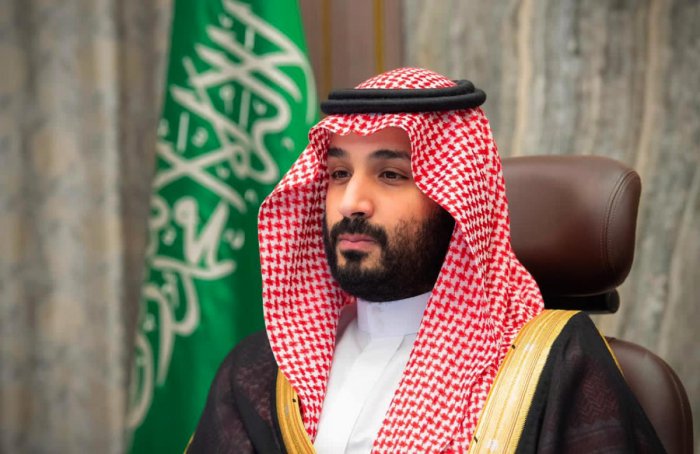Mohammed bin Salman
The Prince of the Wilderness, Who Killed Adults, Displaced Youngsters, Imprisoned Innocents, Incriminated the Righteous, Demolished Homes, and Chopped off Bodies with Chainsaw.
“Don’t judge a book by its cover”. This applies to the Saudi Crown Prince, who spends billions to promote for Saudi Arabia as the “kingdom of justice, development and humanity”, despite the facts that he killed adults, displaced youngsters, imprisoned innocents, incriminated the righteous, demolished homes, and chopped off bodies with a chainsaw. In bin Salman’s law, there is no chapter for mercy. Having a different opinion, criticising the regime or calling for change is extremely prohibited and may lead to death.
His “Kingdom of Justice” is full of detention centres and jails for prisoners of conscience, where one might lose his hearing and eyesight, where one’s health might deteriorate due to the decision of the Saudi authorities to deny detainees the right to treatment. Dr. Abdullah Al-Ouda, son of the Saudi preacher Salman Al-Ouda, had revealed recently on Twitter that “his father lost almost half of his ability to hear and see”, according to the prison’s doctor. He added that his father’s only crime was “Praying for the harmony of hearts and the good of people”.
The Saudi prisons includes also dungeons for female Human Rights activists and feminists who suffer sexual harassment and abuse, electrocution and different kinds of torture, some of them being charged with “terrorism” or “posing a threat to the country’s security”. On May 15, 2018, the Saudi authorities arrested a number of female Human Rights activists including Loujain Al-Hathloul, Samar Badawi, Nasima Al-Sada, Nouf Abdel Aziz, and Maya Al-Zahrani. The Saudi authorities tried Al-Hathloul before the Specialized Criminal Court on charges of terrorism.
Political opponents who tweet against the policies of the government are also subject for detention by security forces which may handcuff and blindfold them at the time of the arrest. In his recent interview with “Arabi 21”, Abdul Hakim Al-Dakhil, son of the former Saudi Undersecretary of Finance Abdulaziz Al-Dakhil – who was arrested for combatting the financial corruption of the state, calling for freedom and justice, and for his reform attempt –, said that “They do not know anything about his father’s condition in his prison until now.”, “Contact with him has been completely cut off, and there is no lawyers for political detainees who can help us get information about his situation.”

In the “Kingdom of Development”, NEOM – the crown prince’s largest project for economic development –, crushed Al-Huwaitat tribe, who have spanned Saudi Arabia for generations, tracing their lineage back before the founding of the Saudi state. The Saudi Crown Prince seeks to build a global technology city at a cost of up to $500 billion to attract foreign investment to the Kingdom. To set up the NEOM project, Saudi Arabia detains, threatens and displaces indigenous people. It had even executed “Abdul Rahim Al-Huwaiti” for rejecting the project. Al-Huwaitat tribe suffers from repressive practices, including cutting supplies of water and electricity, damaging phone lines, and so on.
The “Kingdom of Humanity” has led to the world’s worst humanitarian crisis; the “war in Yemen”; a savage ongoing armed conflict in the Arab world’s poorest country, between Saudi Armed Forces and Yemeni Houthi forces.
In a report, the United Nations Office for the Coordination of Humanitarian Affairs (OCHA) said that the conflict in Yemen has so far claimed the lives of 233,000 people over the last six years. Five million were displaced, and millions are left at imminent risk of descending into famine.
The crisis escalated in 2015 when a Saudi-led military coalition launched a devastating air campaign aimed at rolling back Houthi territorial gains; more than 100,000 of Yemenis, including civilians, are believed to have been killed in direct attacks.
The Saudi regime imposed a hard blockade on sea, land and air routes in Yemen, which prevented the import of vital food, fuel and medical supplies, creating shortages on key commodities for a population in dire need. The intense bombardment destroyed the infrastructure, even hospitals are still being targeted, at a time where epidemics and fatal disease (cholera, dengue fever and Covid-19) are spreading.
As we struggle for Human Rights, we urge for an urgent international action to put pressure on the Saudi regime, who violates Human Rights in Saudi Arabia and supports the violation of Human Rights abroad.
We exhort to intensifying all efforts in order to shed light on the crimes committed by this regime, who even ordered the dismemberment of a Saudi citizen inside his country’s consulate.
We call upon everyone, especially the countries that promote themselves as defenders of Human Rights, to review their relations with Saudi Arabia, and to impose the most severe penalties on the Saudi authorities in order to review their politicised judicial system and their destructive policies.
Read more: The NEOM Project .. Many Questions With No Answers






